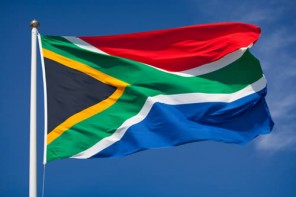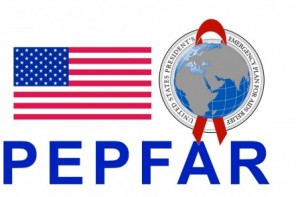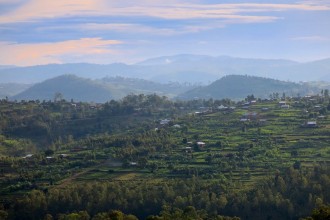Here’s an article from Agence France Press, which is like the A.P. or Reuters–those big news organizations that cover the world in “traditional journalism style.” You’ll recognize it; it’s that thing Jon Stewart mocks so brilliantly. The article is short, but I made it shorter, so I can get to the point:
-
BUJUMBURA (AFP) — Some 600,000 Burundians are suffering from food shortages and need emergency aid, the World Food Programme’s director in the small central African nation said Thursday.
“At preset, we need 60 million dollars to alleviate the suffering of around 600,000 people who are hungry, who are the most vulnerable among the vulnerable,” Jean-Charles Dei said…..
“In 2008, we expect a shortfall of 486,000 tons of food goods in spite of a two-percent increase in harvests compared to the previous year,” Dei said.
He said that 46 percent of the country’s 8.1 million people suffered from chronic malnutrition, explaining that Burundi was self-sufficient in 1993 but that the population had since grown by 33 percent while production stagnated….
Burundi, ranked the world’s third poorest country by the World Bank, is struggling to emerge from a civil war that broke out in 1993 and has cost some 300,000 lives, mostly civilian.
Are you asleep yet?
This article shocked me, actually. What’s this person, whoever he or she is who wrote it, really saying? In news journalism, the last thing you write is supposed to be the “most expendable.” An editor should be able to look at your story and if it doesn’t fit in the space, he starts cutting paragraphs, from the bottom up. But in order to understand what this person is really saying, I have to start from the bottom of his article and work my way to the top. That, already, is an indictment, of the article and the model it is based on.
In 1993, the third in a history of ethnic massacres broke out in Burundi. It’s an unrecognized genocide, one which shares some of the dimensions of but was somehow eclipsed by Rwanda’s own genocide in 1994. Strangers killed strangers; neighbors killed neighbors, and at the end of it all, three hundred thousand people had died, whole families were destroyed, and probably some, as in Rwanda, still haven’t received proper burial. The country’s infrastructure–roads, agriculture, electricity, to say nothing of banks and business–still hasn’t recovered; even if it had, generations of talented Burundians aren’t alive any more, and 15 short years aren’t quite enough to train those who do remain or who have returned to make a country function.
Since then, the country has slowly been negotiating peace, formally and informally: You can have all the agreements you want, but peace is negotiated every day by the people who live in your country.
As you can probably guess, any history of massacres also means a history of refugees. Even before 1993, hundreds of thousands of Burundians were living in refugee camps in Tanzania, Kenya, Rwanda, Congo. As Burundi became stable, they returned home–sometimes because they wanted to, sometimes because their “hosts” wanted them to leave. So now Burundi’s population is soaring. So are land conflicts: if I fled from my family home during the second massacres in 1972, and you’ve been living there since, who owns the house? Does our instinctual answer to that question change if we find out that you, who have been living there, chased we who fled away with a machete? How can we both eat, in a country where people have for generations grown their own food, and where the opportunity to grow food comes only with the right to land, which comes through the family?
And so… “Some 600,000 Burundians are suffering from food shortages and need emergency aid….Burundi was self-sufficient in 1993 but that the population had since grown by 33 percent while production stagnated.”
This is voice for the voiceless?
We say we want to solve problems. How can we solve problems if the very language we use to describe them fails to tell us what they really are? This is not just a problem of journalists. Download a Security Council resolution or a State Department report. Pick up a program report from USAID or CARE, two big players in international aid: This is also a problem of diplomats, and it’s a problem of development workers. In the course of our professional duties to be objective, or to be scientific, or to be both, we use language to cut out of our jobs the very people we are supposed to be helping. The problem is, we in those professions also profess to be advocating for them.
There is a way to be fair, to be objective, to be clear-headed, to be independent, while also acknowledging the humanity of the people you are working with, the nuance of the context you are working in.
So next time you are writing a world news article, or using a log frame, or advising your boss about policy options, stop for a second and read out loud what you have in your hands. Can you hear anything human in it?




i love you final question, and all of the questions that lead up to it. amen for nuance.